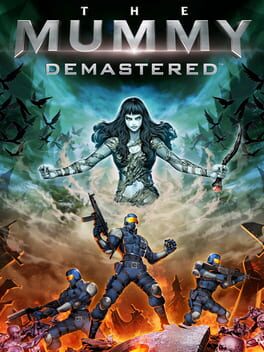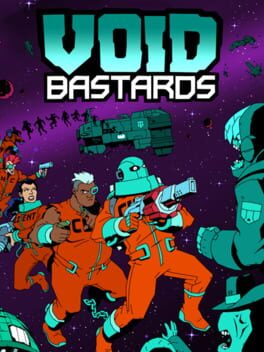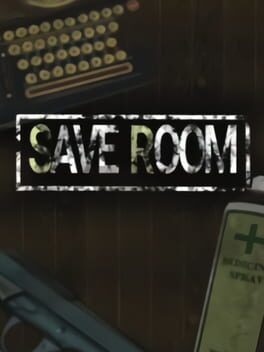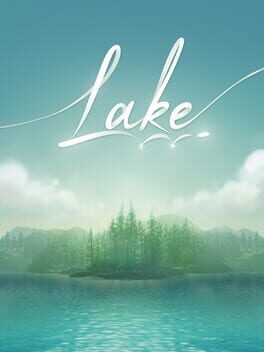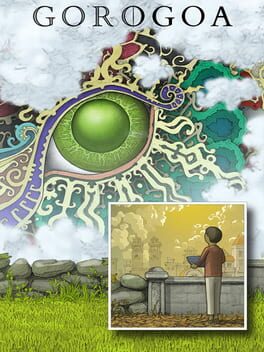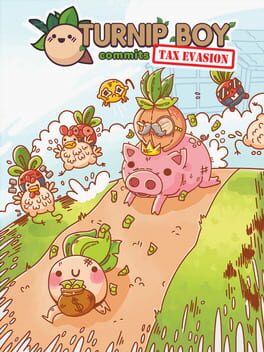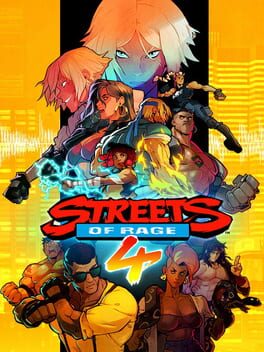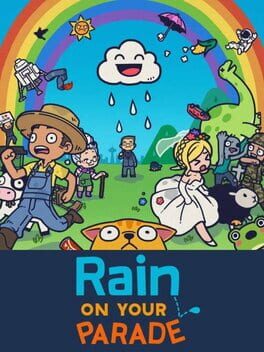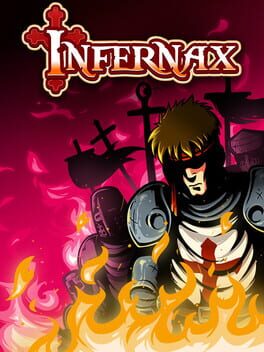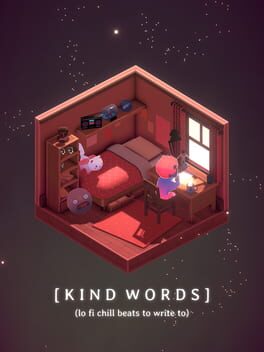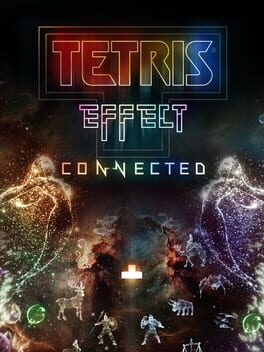Abye
Moonlighter is one of those titles that suffered a little because I played it as an early adopter. I enjoyed Recettear: An Item Shop's Tale, and so I was immediately sold on that concept as a modern experience.
Moonlighter, for the most part, was a fun time in its early state. The weapons provided a nice variety of options, and the gameplay was simple but satisfying. It was a clever angle to have an upgrade tree that either focused on raw power or speciality weapons that inflicted status effects.
Finding secrets by falling into pits provided a nice additional angle to exploration, and the item curses gave item management a twist. The dungeons were varied with a specific theme; the forest frequently caused poison and the technology dungeon is heavy on enemies that shoot lightning. Although the dungeons are formulaic (written off in the story as being that way on purpose), they are just the right size to make an overwhelming number of items a blessing and curse.
But, whilst the earlier version of the game was fun, I thought it suffered from balancing issues. I quickly bought the upgrades and had no reason to keep the shop running. With things heavily money orientated, I could gather loot and get my shop assistant to sell what I didn’t need for upgrades. Maxing out the character and defeating the final boss made for an extremely short endgame. With the game finished and the remaining achievements feeling tedious, I felt that I had no reason to go back at the time.
With the Between Dimensions DLC giving me incentive to go back, I am glad that I did, because things feel much improved with costs being balanced with improvements. The DLC adds a much-needed endgame dungeon with a steep difficulty curve that requires plenty of funds to obtain the upgrades to survive. Prices feel adjusted accordingly, with the Banker offering more of a gamble, and I soon found myself running out of cash and having to run the shop. There is also a new haggling system, with villagers offering trades for rare items and giving more much needed incentive to occupy the store. Villager quests and materials needed for upgrades give more incentive to go back to earlier dungeons.
Although it is often simplistic, Moonlighter is a fun time. My only real gripe with the updated version is how confusing the DLC can appear to be sometimes. There are new wanderer dungeons in the regular dungeons, offering both an alternative route to the next floor, or an additional floor with chests. Cool? Yes. But it’s easy to assume that’s all the DLC is, as the real wanderer dungeon doesn’t appear until after the main story.
But considering how cheaply the whole experience can be picked up these days, I recommend it as a fun week-long RPG with a neat shop gimmick.
Moonlighter, for the most part, was a fun time in its early state. The weapons provided a nice variety of options, and the gameplay was simple but satisfying. It was a clever angle to have an upgrade tree that either focused on raw power or speciality weapons that inflicted status effects.
Finding secrets by falling into pits provided a nice additional angle to exploration, and the item curses gave item management a twist. The dungeons were varied with a specific theme; the forest frequently caused poison and the technology dungeon is heavy on enemies that shoot lightning. Although the dungeons are formulaic (written off in the story as being that way on purpose), they are just the right size to make an overwhelming number of items a blessing and curse.
But, whilst the earlier version of the game was fun, I thought it suffered from balancing issues. I quickly bought the upgrades and had no reason to keep the shop running. With things heavily money orientated, I could gather loot and get my shop assistant to sell what I didn’t need for upgrades. Maxing out the character and defeating the final boss made for an extremely short endgame. With the game finished and the remaining achievements feeling tedious, I felt that I had no reason to go back at the time.
With the Between Dimensions DLC giving me incentive to go back, I am glad that I did, because things feel much improved with costs being balanced with improvements. The DLC adds a much-needed endgame dungeon with a steep difficulty curve that requires plenty of funds to obtain the upgrades to survive. Prices feel adjusted accordingly, with the Banker offering more of a gamble, and I soon found myself running out of cash and having to run the shop. There is also a new haggling system, with villagers offering trades for rare items and giving more much needed incentive to occupy the store. Villager quests and materials needed for upgrades give more incentive to go back to earlier dungeons.
Although it is often simplistic, Moonlighter is a fun time. My only real gripe with the updated version is how confusing the DLC can appear to be sometimes. There are new wanderer dungeons in the regular dungeons, offering both an alternative route to the next floor, or an additional floor with chests. Cool? Yes. But it’s easy to assume that’s all the DLC is, as the real wanderer dungeon doesn’t appear until after the main story.
But considering how cheaply the whole experience can be picked up these days, I recommend it as a fun week-long RPG with a neat shop gimmick.
The Mummy Demastered is excellent. It's almost a joke; the derivative being better than the product it's based upon.
Games based on movies tend to be awful, so much so, there are very few that stand out as great. The Mummy Demastered has no right to be as good as it is, being based on a heavily panned movie that flopped so badly that it killed the cinematic universe it tried to jumpstart.
The soundtrack is also full of bangers, with some nostalgia-feel songs that work well with the surprisingly plumbed environments which blend seamlessly. The graphics are great and blend Egyptian mythology perfectly into a contemporary British setting that worked around the limits of the movie. It genuinely feels like Ahmanet is invading, with London streets covered in sand. Mummies rise alongside contemporary zombies, templar knights and skeletons. Locusts make for great fodder enemies as well as a means to work in a persistent Egyptian theme, and bosses are based on Egyptian deities and myths.
The metroidvania elements blend perfectly with a rogue-lite system. Dying results in a new agent being sent out and having to recover upgrades from the zombified former player character. The later in the game things get, the more deadly the predecessor becomes. Upgrades feel like upgrades, with a variety of weapons, artifacts and subweapons. Finding a new weapon in a barricaded room feels so satisfying, especially when it comes to learning what works effectively on different enemies.
Do I have any gripes? Not particularly. The metroidvania elements are superb, but there aren't any hidden rooms in the standard sense. The sealed rooms are closer to Metroid's doors that require a missile or beam. An upgrade later destroys walls, but as a means of creating a convenient path with very few secrets to be found like this.
The relics felt a little tedious, as they are little more than a rising number found in random containers, with no real variety or lore tied to them (but, then again, the movie it was based upon was as deep as a soup spoon, so...)
I feel a little sad that the franchise is dead in the water and dragged down any hopes of a sequel to this game with it. I would've loved to have seen different mythologies being tackled and how this would effect gameplay.
The game is short, so it definitely does not outstay its welcome. But it's an excellent experience, especially with challenges like trying to get through the game with one agent.
Wholly recommended as a game to blast through in a few short days, and it's worth going back to after a few years.
Games based on movies tend to be awful, so much so, there are very few that stand out as great. The Mummy Demastered has no right to be as good as it is, being based on a heavily panned movie that flopped so badly that it killed the cinematic universe it tried to jumpstart.
The soundtrack is also full of bangers, with some nostalgia-feel songs that work well with the surprisingly plumbed environments which blend seamlessly. The graphics are great and blend Egyptian mythology perfectly into a contemporary British setting that worked around the limits of the movie. It genuinely feels like Ahmanet is invading, with London streets covered in sand. Mummies rise alongside contemporary zombies, templar knights and skeletons. Locusts make for great fodder enemies as well as a means to work in a persistent Egyptian theme, and bosses are based on Egyptian deities and myths.
The metroidvania elements blend perfectly with a rogue-lite system. Dying results in a new agent being sent out and having to recover upgrades from the zombified former player character. The later in the game things get, the more deadly the predecessor becomes. Upgrades feel like upgrades, with a variety of weapons, artifacts and subweapons. Finding a new weapon in a barricaded room feels so satisfying, especially when it comes to learning what works effectively on different enemies.
Do I have any gripes? Not particularly. The metroidvania elements are superb, but there aren't any hidden rooms in the standard sense. The sealed rooms are closer to Metroid's doors that require a missile or beam. An upgrade later destroys walls, but as a means of creating a convenient path with very few secrets to be found like this.
The relics felt a little tedious, as they are little more than a rising number found in random containers, with no real variety or lore tied to them (but, then again, the movie it was based upon was as deep as a soup spoon, so...)
I feel a little sad that the franchise is dead in the water and dragged down any hopes of a sequel to this game with it. I would've loved to have seen different mythologies being tackled and how this would effect gameplay.
The game is short, so it definitely does not outstay its welcome. But it's an excellent experience, especially with challenges like trying to get through the game with one agent.
Wholly recommended as a game to blast through in a few short days, and it's worth going back to after a few years.
2019
A fun action roguelike, with a smart amount of strategy that involves moving from ship to ship in search of what you need most at the time. All pulled together with a neon-punky British sci-fi aesthetic that wouldn't look out of place on British snacks from the 80s and 90s.
A variety of hazards and character quirks inject some much-needed variety into the stages. A dash through oil spills to make it to a healing machine can be equal parts hilarious and frustrating, and it was fun to dash to the exit with bullets trailing after me.
It's deeply saturated with anti-corporate humour. Anti-climatic conclusions serve as both the punchline but also an unsatisfying ending to many things. Don't expect dramatic boss fights or plot twists.
Wholly recommended to sci-fi fans and those looking for a quirky FPS rogue-like that relies more on motion than stats.
A variety of hazards and character quirks inject some much-needed variety into the stages. A dash through oil spills to make it to a healing machine can be equal parts hilarious and frustrating, and it was fun to dash to the exit with bullets trailing after me.
It's deeply saturated with anti-corporate humour. Anti-climatic conclusions serve as both the punchline but also an unsatisfying ending to many things. Don't expect dramatic boss fights or plot twists.
Wholly recommended to sci-fi fans and those looking for a quirky FPS rogue-like that relies more on motion than stats.
A game made from the concept of the Resident Evil 4 inventory system, with some surprisingly difficult puzzles based on making the most out of inventory space.
Resident Evil fans will get a kick out of the item descriptions. Despite the ominous music and atmosphere, it's not a horror title and there are no jump scares.
Not a long time, but a fun time.
Resident Evil fans will get a kick out of the item descriptions. Despite the ominous music and atmosphere, it's not a horror title and there are no jump scares.
Not a long time, but a fun time.
2022
A quirky little cleaning sim that's let down by a few baffling design choices.
Whilst it's satisfying to clean away muck and debris with pleasing noises, the stages and objectives often become frustrating. One lone plant or muck stain hidden in a random place (sometimes behind a painting or scenery) wouldn't bar completion but it would prevent the 100% rate. That one not-quite-popped clump of barely visible dirt completely shredded whatever relaxation the game offered.
The skill points and inventory system feel completely unnecessary, with the early stages feeling like a slog until things increase in level and move to what should be the standard. The inventory didn't nearly fill quickly enough for it to matter, it was mostly empty even before it was fully upgraded. The skill points system wasn't nearly expansive enough to warrant a second playthrough and there was no way to tell which stages were 100% complete.
Power Wash Simulator this is not, but the game isn't entirely without merit. The stages were fun to explore with achievement unlocking easter eggs and animals to find and pet. There's a positive pro-nature message to be had, but it regrettably lacks the polish to make any poignant or wholesome statements.
Recommended if you're an achievement hunter or someone looking to casually spend a few hours on a cleaning sim without much depth.
Whilst it's satisfying to clean away muck and debris with pleasing noises, the stages and objectives often become frustrating. One lone plant or muck stain hidden in a random place (sometimes behind a painting or scenery) wouldn't bar completion but it would prevent the 100% rate. That one not-quite-popped clump of barely visible dirt completely shredded whatever relaxation the game offered.
The skill points and inventory system feel completely unnecessary, with the early stages feeling like a slog until things increase in level and move to what should be the standard. The inventory didn't nearly fill quickly enough for it to matter, it was mostly empty even before it was fully upgraded. The skill points system wasn't nearly expansive enough to warrant a second playthrough and there was no way to tell which stages were 100% complete.
Power Wash Simulator this is not, but the game isn't entirely without merit. The stages were fun to explore with achievement unlocking easter eggs and animals to find and pet. There's a positive pro-nature message to be had, but it regrettably lacks the polish to make any poignant or wholesome statements.
Recommended if you're an achievement hunter or someone looking to casually spend a few hours on a cleaning sim without much depth.
2021
A cozy mail delivery sim with romance and drama elements. The town captures idyllic scenery with a hit of 80s nostalgia. It pushes all the right buttons when it comes to capturing a quiet and almost mediative life and routine. Quirky characters break up the delivery elements, and the game is so short that it doesn't feel monotonous.
But, if you're expecting some grandiose revelations or plot twists in the final act, you're not going to find anything. The game is very much "what you see is what you get".
But, if you're expecting some grandiose revelations or plot twists in the final act, you're not going to find anything. The game is very much "what you see is what you get".
2021
2017
A brilliantly done puzzle game with some very inventive mechanics. The puzzles often require lateral thinking, and trying similar things together until something works.
The game is visually pleasing, with some beautifully rendered environments, hypnotic patterns and different styles working seamlessly together. The art of a train station map fits perfectly with the intricate carvings of a building.
There were a few annoying moments. Having to spin something in the right direction felt tedious, especially when something so quick is in a game that's methodical.
A short but fun experience that does not outstay its welcome. Recommended as a filler between bigger titles.
The game is visually pleasing, with some beautifully rendered environments, hypnotic patterns and different styles working seamlessly together. The art of a train station map fits perfectly with the intricate carvings of a building.
There were a few annoying moments. Having to spin something in the right direction felt tedious, especially when something so quick is in a game that's methodical.
A short but fun experience that does not outstay its welcome. Recommended as a filler between bigger titles.
Fun, short and filled with cutesy humour.
The gameplay is very basic, with the easiest comparison being that of Zelda. It's mostly puzzle solving with the occasional fight along the way, and bosses that require a gimmick to defeat.
The humour is consistent but plays it safe, the title alone is enough to gauge the atmosphere of this game. It may feel monotonous towards the end, but it did make me chuckle along the way.
Recommended as a nice weekend distraction while it's still on Game Pass.
The gameplay is very basic, with the easiest comparison being that of Zelda. It's mostly puzzle solving with the occasional fight along the way, and bosses that require a gimmick to defeat.
The humour is consistent but plays it safe, the title alone is enough to gauge the atmosphere of this game. It may feel monotonous towards the end, but it did make me chuckle along the way.
Recommended as a nice weekend distraction while it's still on Game Pass.
2020
A lovingly designed sequel that takes the best parts of the original games, and polishes its core mechanics to competitive fighting game standards.
Although a single playthrough is short, unlockable characters and modes add to the replayability. Every character has a unique feel to them, and playing through once will lead to missing out on characters that are a better fit. The points system is well thought out and rewards damage instead of just a long combo.
I have very few gripes with this game. The pacing of normal mode is questionable, as I was practically tripping over small health items and weapons in shorter stages. Some of the recoloured enemies lack a noticeable difference aside from a longer health bar, but some do have varying strategies.
Overall, a pleasing experience that many fans of the original games will appreciate. It's a pick-up-and-play kind of game that satisfies but is open enough to keep players coming back. Recommended.
Although a single playthrough is short, unlockable characters and modes add to the replayability. Every character has a unique feel to them, and playing through once will lead to missing out on characters that are a better fit. The points system is well thought out and rewards damage instead of just a long combo.
I have very few gripes with this game. The pacing of normal mode is questionable, as I was practically tripping over small health items and weapons in shorter stages. Some of the recoloured enemies lack a noticeable difference aside from a longer health bar, but some do have varying strategies.
Overall, a pleasing experience that many fans of the original games will appreciate. It's a pick-up-and-play kind of game that satisfies but is open enough to keep players coming back. Recommended.
2021
A fun little game that makes good use of its weather mechanic in various ways. The craft-like aesthetic makes for a charming experience.
Short enough to not outstay it's welcome, but with some frustrating glitches tied to the mechanics. There were times when I had to restart because objectives were pushed out of the play area.
Recommended as a fun weekend blast, but little else.
Short enough to not outstay it's welcome, but with some frustrating glitches tied to the mechanics. There were times when I had to restart because objectives were pushed out of the play area.
Recommended as a fun weekend blast, but little else.
2022
Infernax has been a pleasant surprise. The art style made me expect a linear experience, so I was delightfully thrown off guard when I discovered how open the world is. It’s a loving homage to Castlevania 2 and improves upon many of the shortcomings found in that game.
The game has light Metroidvania elements and exploration, but where the game excels is the player choice and morality system. Most games suffer from presenting superficial choices that only nudge the player toward a specific ending at most. Infernax truly shines when choices lead to interesting consequences, and morality has an impact on gameplay.
For example, the first choice the player is presented with is to slay or help a possessed villager who is in pain. Mercy killing the villager results in the game continuing as normal. Try to help the villager, however, and he transforms into the first boss monster of the game. The decision may seem obvious; put the man out of his misery and avoid the apparent punishment of a boss fight. But things aren’t as clear as they first seem. Killing the villager ends the questline then and there. Trying to help him will introduce the player to the combat system and nets them XP for success. Later, the player can continue the questline and learn more about the boss they fought.
The morality system is highly impressive. Not all choices are vague, and it’s possible to deliberately make evil decisions. Do enough evil deeds, and Alcedor will switch weapons and gain access to new variants of spells. The endings also provide a nice reward in the form of cheat codes, which add fun modifiers to the game, as well as surprisingly fleshed-out alternative characters with their own choice of weapons.
The graphics, music and overall style of the game are fantastic. Infernax truly captures the classic elements of NES/8-bit games with modern conventions. There is a dark twist running through the game, with excessive gore and body horror. The shrieking sound effects are surprisingly effective in how disturbing they can be. The death screens are brilliantly done, with an ominous tune that halts when the silhouette of Alcedor meets a grizzly end. The environments have a nice variety to them, and every location feels like it has its own story.
Do I have any gripes? A few, but they are admittedly petty, given how much I’ve enjoyed the game. The potion system is weird, not broken, but weird. Upon death, HP and mana are fully restored but potions aren’t restocked. I found it better to spend mana to drag out my current life until I reached zero lives where I would crack out the potions to continue on a boss. I couldn’t help but feel that potions should be bought like spells and restocked at a save point for gold, instead of tediously going to an inn for a restock.
Progress felt a little confusing at times, but not massively so. The key system felt hit and miss, with the somewhat cruel punishment of a locked door for daring to go the wrong way the first time. Getting rewarded with a key for story progress made something of a mess early game, as it’s possible to spend it in the wrong dungeon. This forces the player to backtrack for an additional key so they have the correct amount. Love the exploration, dislike the punishment for exploration. On that note, a certain keep is summoned with a spell, this would’ve been great as a secret rather than a mandatory dungeon.
But as I said, this is petty when compared to the enjoyment I got from the rest of the game. It’s a fun experience with lots of replayability to get the alternative endings and fill the Demonology book. Wholly recommended for fans of Castlevania and folks looking for a gruesome Metroidvania to tear through in a week.
The game has light Metroidvania elements and exploration, but where the game excels is the player choice and morality system. Most games suffer from presenting superficial choices that only nudge the player toward a specific ending at most. Infernax truly shines when choices lead to interesting consequences, and morality has an impact on gameplay.
For example, the first choice the player is presented with is to slay or help a possessed villager who is in pain. Mercy killing the villager results in the game continuing as normal. Try to help the villager, however, and he transforms into the first boss monster of the game. The decision may seem obvious; put the man out of his misery and avoid the apparent punishment of a boss fight. But things aren’t as clear as they first seem. Killing the villager ends the questline then and there. Trying to help him will introduce the player to the combat system and nets them XP for success. Later, the player can continue the questline and learn more about the boss they fought.
The morality system is highly impressive. Not all choices are vague, and it’s possible to deliberately make evil decisions. Do enough evil deeds, and Alcedor will switch weapons and gain access to new variants of spells. The endings also provide a nice reward in the form of cheat codes, which add fun modifiers to the game, as well as surprisingly fleshed-out alternative characters with their own choice of weapons.
The graphics, music and overall style of the game are fantastic. Infernax truly captures the classic elements of NES/8-bit games with modern conventions. There is a dark twist running through the game, with excessive gore and body horror. The shrieking sound effects are surprisingly effective in how disturbing they can be. The death screens are brilliantly done, with an ominous tune that halts when the silhouette of Alcedor meets a grizzly end. The environments have a nice variety to them, and every location feels like it has its own story.
Do I have any gripes? A few, but they are admittedly petty, given how much I’ve enjoyed the game. The potion system is weird, not broken, but weird. Upon death, HP and mana are fully restored but potions aren’t restocked. I found it better to spend mana to drag out my current life until I reached zero lives where I would crack out the potions to continue on a boss. I couldn’t help but feel that potions should be bought like spells and restocked at a save point for gold, instead of tediously going to an inn for a restock.
Progress felt a little confusing at times, but not massively so. The key system felt hit and miss, with the somewhat cruel punishment of a locked door for daring to go the wrong way the first time. Getting rewarded with a key for story progress made something of a mess early game, as it’s possible to spend it in the wrong dungeon. This forces the player to backtrack for an additional key so they have the correct amount. Love the exploration, dislike the punishment for exploration. On that note, a certain keep is summoned with a spell, this would’ve been great as a secret rather than a mandatory dungeon.
But as I said, this is petty when compared to the enjoyment I got from the rest of the game. It’s a fun experience with lots of replayability to get the alternative endings and fill the Demonology book. Wholly recommended for fans of Castlevania and folks looking for a gruesome Metroidvania to tear through in a week.
One of the better Dragon Ball Z games out there for people craving more exploration than games like Fighterz.
The game does suffer from some pacing issues, as there will be long cutscenes between brief fights. Some iconic scenes are reduced to a screenshot and a text summary. Despite the name, it felt more like Gohan's story than Goku's.
It was fun to explore the Dragon Ball world and find collectables. The fighting mechanics are fun, but things get repetitive towards the end of the very long story.
Whilst it is mostly a love letter to Dragon Ball Z fans, newcomers will find the story comprehensive.
The game does suffer from some pacing issues, as there will be long cutscenes between brief fights. Some iconic scenes are reduced to a screenshot and a text summary. Despite the name, it felt more like Gohan's story than Goku's.
It was fun to explore the Dragon Ball world and find collectables. The fighting mechanics are fun, but things get repetitive towards the end of the very long story.
Whilst it is mostly a love letter to Dragon Ball Z fans, newcomers will find the story comprehensive.
2019
Kind Words isn't really a game, just a very well executed idea that takes the form of a game.
It's relaxing to send wholesome messages to a chill soundtrack. The community appears to be well moderated, as I've never experienced griefing in the two years I've played this game.
The stickers provide a nice incentive to share positive messages, whilst receiving unique options to decorate a chosen room.
Recommended as a nice distraction.
It's relaxing to send wholesome messages to a chill soundtrack. The community appears to be well moderated, as I've never experienced griefing in the two years I've played this game.
The stickers provide a nice incentive to share positive messages, whilst receiving unique options to decorate a chosen room.
Recommended as a nice distraction.
Tetris Effect: Connected introduces interesting twists to a winning formula; a reactive environment and fluctuating gameplay.
In Journey Mode, some of the areas are relaxing whilst others are upbeat and quick. However, I found this to be hit-and-miss as there were spikes in difficulty due to suddenly maxing the speed. Sometimes, the flow into a more challenging game felt steady, whilst other times it felt like a punishing difficulty increase with nothing to learn from.
Whilst the music and visuals were charming, it did feel loaded with redundant elements, accidentally shifting the camera mid-game is annoying and serves no real purpose. I could complain that the visuals were somewhat distracting, but I guess that was the point of some of them.
Whilst free to play on Game Pass at the time of writing this review, I can't recommend it at full price. I can only recommend it to those who feel like the occasional lazy game of Tetris, but other (cheaper) options are available.
In Journey Mode, some of the areas are relaxing whilst others are upbeat and quick. However, I found this to be hit-and-miss as there were spikes in difficulty due to suddenly maxing the speed. Sometimes, the flow into a more challenging game felt steady, whilst other times it felt like a punishing difficulty increase with nothing to learn from.
Whilst the music and visuals were charming, it did feel loaded with redundant elements, accidentally shifting the camera mid-game is annoying and serves no real purpose. I could complain that the visuals were somewhat distracting, but I guess that was the point of some of them.
Whilst free to play on Game Pass at the time of writing this review, I can't recommend it at full price. I can only recommend it to those who feel like the occasional lazy game of Tetris, but other (cheaper) options are available.

